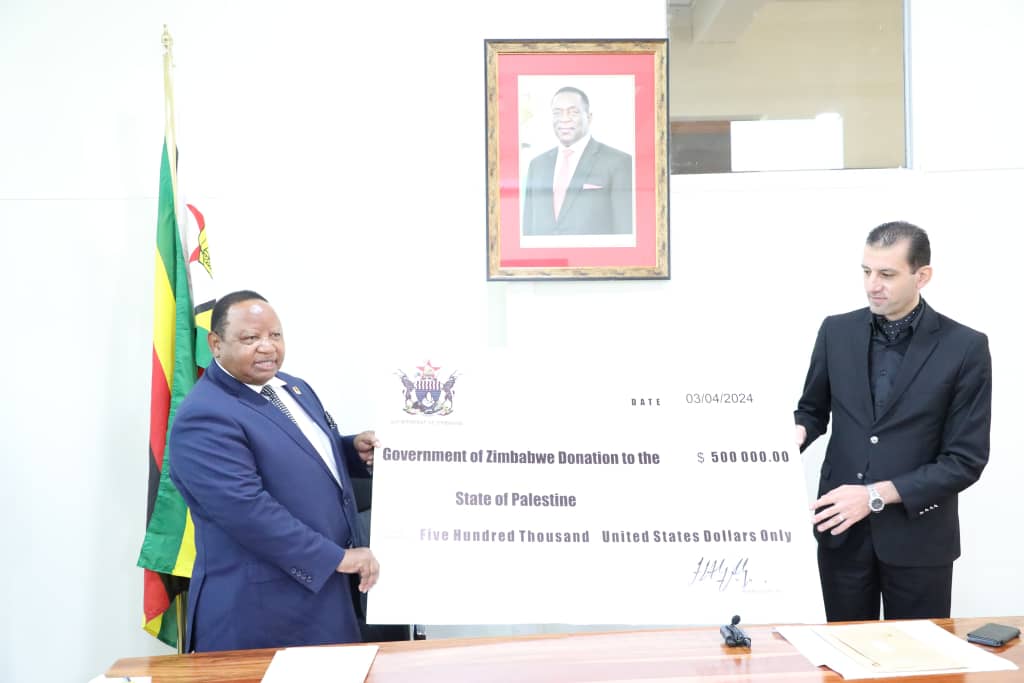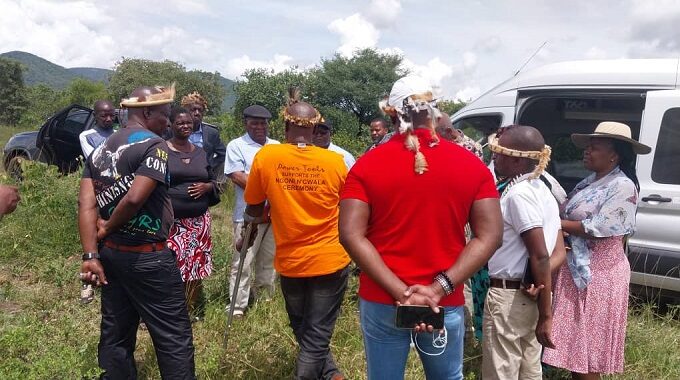By Andrew Kunambura
WHILE ZANU-PF propagandists have ruled out the possibility of the ZANU-PF conference to be held in Victoria Falls next week turning into an elective indaba of some sort, key constituencies in the ruling party are having none of it as they push for the ouster of individuals they perceive to be frustrating their factional agendas.

This week, the ghost of factionalism in ZANU-PF reared its ugly head again with members of the restless Youth League in the Midlands Province calling for a roots-and-branch shake-up of the party’s no-nonsense National Disciplinary Committee (NDC).
The six-member committee was appointed into office by President Robert Mugabe after his party’s epoch congress held last December.
For the 11 months it has been presiding over disciplinary cases referred to it, the NDC has delivered hammer blows to former vice president Joice Mujuru, cutting short her fairytale rise in ZANU-PF.
Mujuru was fired from the party in April for plotting against her former boss.
“All in all, at least 150 members of her camp have either been dismissed from ZANU-PF or suspended for varying periods for aiding and abetting Mujuru’s presidential ambitions”.
With the factional fights in ZANU-PF refusing to die even after the expulsion of Mujuru and her cabal, the NDC is facing tough questions.
ZANU-PF youths in the Midlands have broken their silence, accusing the committee of partisanship and failure to uphold the party’s constitution.
By taking aim at the NDC, the youths in Vice President Emmerson Mnangagwa’s home province have in actual fact dared the top echelons of ZANU-PF.
The NDC is chaired by Vice President Phelekezela Mphoko, who doubles up as the party’s chairman, albeit on a rotational basis.
Its other members include First Lady, Grace Mugabe (secretary for women’s affairs); Patrick Chinamasa (secretary for legal affairs); Saviour Kasukuwere (national political commissar); Kembo Mohadi (secretary for defence and security) and Pupurai Togarepi (secretary for youth affairs).
At an inter-district meeting held in Gweru, the youths resolved that members of the NDC should either recuse themselves or be reshuffled.
“The provincial Youth League is gravely concerned with the lack of fair disciplinary hearings of accused members of the party, who are not afforded an opportunity to defend themselves. Some of the alleged offences are concocted by secessionists,” reads part of the resolutions from the meeting leaked to the Financial Gazette.
“Natural justice calls for a right to be heard of accused persons and the league calls upon all individuals with interests to recuse themselves from NDC proceedings to avoid conflict of interests”.
Whether President Mugabe, as the sole appointing authority in ZANU-PF, will act on the resolution shall only be seen during the seven-day indaba, which opens on December 7.
The meeting also resolved that the position of head of the party’s commissariat should be reserved for a person who fought in the liberation war, a tacit disapproval of Kasukuwere, who was only 10 when the colonial Ian Smith regime was uprooted after a protracted war that brought the country’s independence on April 18, 1980.
As secretary for the commissariat, Kasukuwere is at the nerve centre of the political swings in ZANU-PF.
His brash style has earned him friends and foes alike.
Only last week, this paper reported that war veterans — another important constituency in ZANU-PF — was fed up with Kasukuwere and wants one of their own to take-over from him.
But then, they would also need to convince President Mugabe to give him the boot, which is not going to be easy.
While he has struggled to see through the party’s restructuring, Kasukuwere’s score sheet looks impressive.
He has so far delivered victory in all the by-elections held so far.
In Bulawayo, ZANU-PF now has representation in half of the constituencies, breaking the Movement for Democratic Change’s 15-year-old dominance in the metropolis.
Kasukuwere’s main functions encompass the supervision of activities of organs of the party at all levels; organising, supervising and conducting elections at all levels of the party; crafting strategies and implementing them.
It’s a position that also gives him the privilege to chair the political and policy committee of the party’s Central Committee, which is the supreme policy-making organ of ZANU-PF.
Justice Mayor Wadyajena, the provincial youth secretary for administration and Mnangagwa ally, confirmed the resolutions this week.
The NDC has become the latest battlefront for party heavyweights jostling to succeed the incumbent, who turns 92 in February.
The latest fissures have been triggered by the suspension of key allies of Mnangagwa, the man tipped to succeed President Mugabe.
Last week, a Mnangagwa ally, Happiness Nyakuedzwa, was suspended for two years as Manicaland provincial Women’s League chairperson.
This followed recommendation by the NDC, upheld by the Politburo last Wednesday.
Among the charges levelled against Nyakuedzwa is that of insulting and undermining the First Lady.
The committee is also deliberating the fate of another Mnangagwa ally, Godfrey Tsenengamu, suspended from the Mashonaland Central youth chairmanship about two months ago.
Reports say, Tsenengamu faces suspension for up to five years.
More Mnangagwa allies, including embattled secretary for transport, Oppah Muchinguri-Kashiri, are also on a political knife-edge.
Mnangagwa himself is not entirely safe.
In certain provinces, including Mashonaland East, members of the Women’s League are pressing President Mugabe to observe the quota system, which benefited Mujuru in 2004 when she was made Vice President ahead of Mnangagwa, her fiercest rival.
Should the women’s voice prevail, like it did in 2004, Mphoko would be safe as his appointment was in conformity with the 1987 Unity Accord signed between President Mugabe and Joshua Nkomo, now late, to bring their respective party together.
The only other way to appease the womenfolk without upsetting the existing hierarchy would be to appoint one of them to the position of national chairman, which is currently vacant.
Still, this would present challenges for ZANU-PF as previous holders of the position, after 1897, where former members of ZAPU.
In order to defend their turf, cadres in Mnangagwa’s home province of the Midlands are taking no prisoner and sparing no quarter.
Their vitriol is most vicious when it comes to perceived members of a shadowy ZANU-PF faction going by the moniker Generation 40 or simply G40, among them Kasukuwere, Jonathan Moyo and Patrick Zhuwao.
Of late, their tirade has known no boundaries.
Anyone perceived to be not doing enough to lend support to their preferred successor has become political fodder.
There is a strong feeling among Mnangagwa’s backers that the NDC is being used to weaken their horse by building up cases against their allies for censure and possible dismissal from ZANU-PF.
Nyakuedzwa and Tsenengamu, even though they are down, have not given up the fight.
They argued this week that no disciplinary procedures were followed, in violation of the party’s constitution.
ZANU-PF’s constitution stipulates that an errant party member who is in provincial structures should be brought before the provincial disciplinary committee for hearing.
The case will be taken to the provincial executive, which will then reach a decision and make a recommendation to the Provincial Coordinating Committee (PCC).
The PCC will then write to the NDC to deliberate on the matter and pass a recommendation to the Politburo for action.
Any action taken by the Politburo does not take effect until ratified by the Central Committee, ZANU-PF’s policy-making organ.
However, the cases of Nyakuedzwa and Tsenengamu were not subjected to that process as they were never called to a hearing.
Nyakuedzwa confirmed this week that she was never called to appear before the NDC.
“I was actually waiting to be called to answer to the accusations they laid against me, but it did not happen. I was never even formally informed of the charges. After all, I did not do anything of what they accused me of. This is very unfair. I thought I belonged to a party which handles issues professionally but this is what we have. At this rate of unfairness, one day someone will be accused of murder and get hanged without being tried,” she said.
Tsenengamu also said he was not invited to a disciplinary hearing but declined to speak more.
Contacted for comment this week, ZANU-PF spokesman, Simon Khaya-Moyo maintained his earlier stance.
“I will only speak when the time is right and the official position is arrived at,” he said.
Khaya-Moyo is on recording saying they will not be any constitutional or leadership changes at conference.
In terms of the party’s constitution, the indaba is convened for purposes of receiving and considering reports of the Central Committee on behalf of congress; co-ordinating and supervising the implementation of decisions and programmes of congress by the Central Committee; declaring the President of the party elected at congress as the State presidential candidate of ZANU-PF and exercising any such powers and authority as may be incidental thereto.
Those who are eligible to attend are members of the Central Committee; the National Consultative Assembly; the National Council of the Women’s League; the National Council of the Youth League the Provincial Coordinating Committees; the Provincial Councils; District Coordinating Committees and members of the District Executive Councils as may be determined by the Central Committee from time to time.
But with the infighting in ZANU-PF reaching fever-pitch, anything is possible.
Judging from the resolutions from the provinces, it may be difficult to silence the Youth and Women’s leagues.
Kasukuwere appeared to ignore calls to his cell-phone when contacted for comment this week.
Last week, he, however, said he does not speak to the Financial Gazette claiming that the weekly paper always writes rubbish about him.Fingaz








